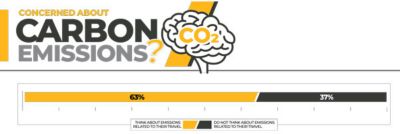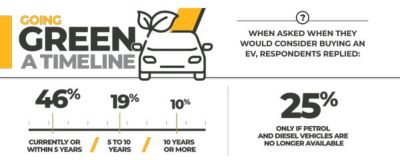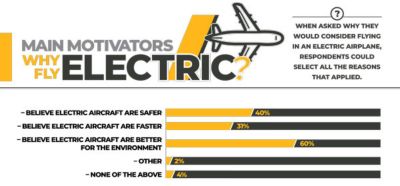-
United States -
United Kingdom -
India -
France -
Deutschland -
Italia -
日本 -
대한민국 -
中国 -
台灣
-
Ansys is committed to setting today's students up for success, by providing free simulation engineering software to students.
-
Ansys is committed to setting today's students up for success, by providing free simulation engineering software to students.
-
Ansys is committed to setting today's students up for success, by providing free simulation engineering software to students.
-
Contact Us -
Careers -
Students and Academic -
For United States and Canada
+1 844.462.6797
ANSYS BLOG
September 1, 2020
Electrification’s Sustainability Benefits Are in Demand
Whether we travel by car or plane, consumers are interested in the promise of widespread electrification. Sustainability concerns ranked even higher than cost concerns in a new electrification survey commissioned by Ansys, but U.S. consumers were outliers in many of the data points.
Globally, nearly two-thirds (63%) of respondents report thinking about carbon emissions when they travel. This is reversed when analyzing U.S. respondent data, where 39% of respondents think about emissions related to travel. That’s a stark contrast to respondents in countries in the Asia-Pacific (APAC) region like Japan, China and India where 60%, 85% and 89%, respectively, say they think about emissions when traveling. In fact, the U.S. is the only region where the majority of respondents reported not considering emissions when traveling.
Electrification Enthusiasm Linked to Carbon Emission Awareness
Does that mean U.S. consumers are less likely to purchase electric vehicles (EV) or fly on electric planes? Yes, slightly, but almost half (49%) say they now own or would consider buying an EV in the next 10 years. That lags just behind respondents in major European markets, such as France (59%), Germany (55%) and Sweden (54%). The U.K. respondents were even less willing to make the switch to EVs than their U.S. counterparts, with 44% planning to own an EV in the next 10 years.
Globally, 46% of respondents say they own an EV or would consider buying one in the next five years and 65% plan to own an EV this decade. Respondents from the countries most aware of carbon emissions are also the most enthusiastic about EV ownership with 92% of Indian respondents, 90% of Chinese respondents and 55% of Japanese respondents already owning or expecting to own an EV within 10 years.
Cost is not the top factor preventing respondents from purchasing an electric vehicle, but it’s close, falling just behind too few charging points and just before driving range concerns. More than two-thirds of global respondents say they would buy an EV as their next vehicle if it cost as much as a gas-powered vehicle. Consumers in India and China are ready to lead the charge, with 87% and 77%, respectively, saying they would purchase an EV if the cost were comparable to gas-powered vehicles.
Consumers Willing to Pay for More Sustainable Air Travel
The idea of traveling via electric planes is a new concept to respondents, but appears to have a bright future based on their responses. More than half (58%) of all respondents had not heard of electric airplanes prior to taking our survey and 86% report having some concerns about riding in an electric aircraft. However, the belief that electric aircraft are better for the environment is the No. 1 reason respondents would consider flying in an electric plane.
A number of other data points from the survey make the case for greener skies. Forty percent of those surveyed are more likely to fly with airlines that are committed to reducing their carbon footprint. Globally, more than half of respondents say they feel guilty about their air travel footprint. In the U.S. and Sweden, that guilt affects just 34% of respondents, while 77% of Indian air travelers are riddled with carbon footprint guilt.
Flying less is not how respondents would like to assuage that guilt. When asked to rank the actions they’d take to reduce their air travel carbon footprint, most respondents would prefer not to limit their air travel. The vast majority of respondents (89%) say they are willing to pay more for greener air travel.
For more electrification survey results, check out these electrification infographics that break out responses by region.















